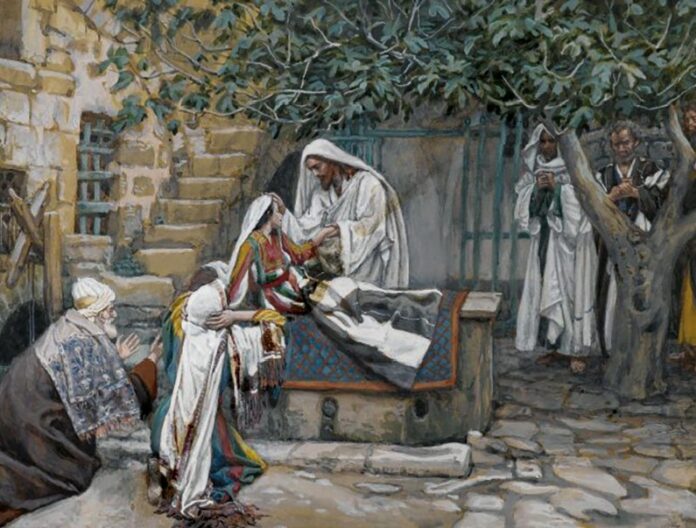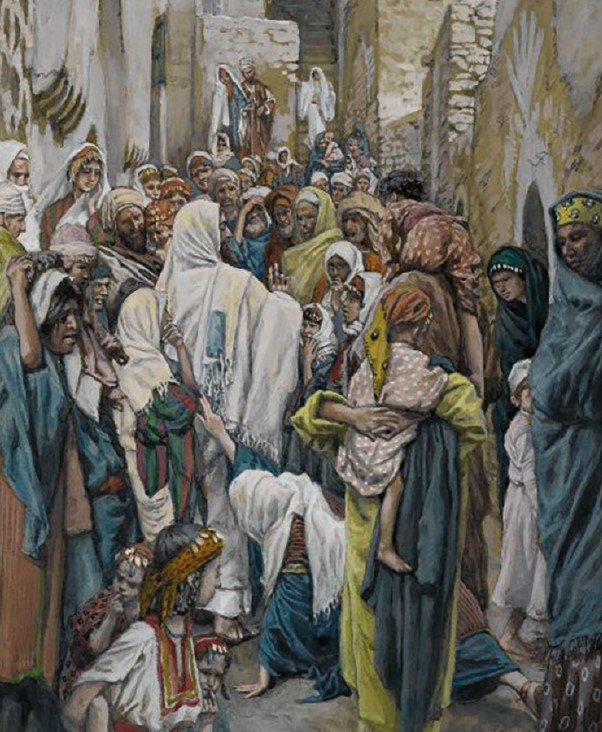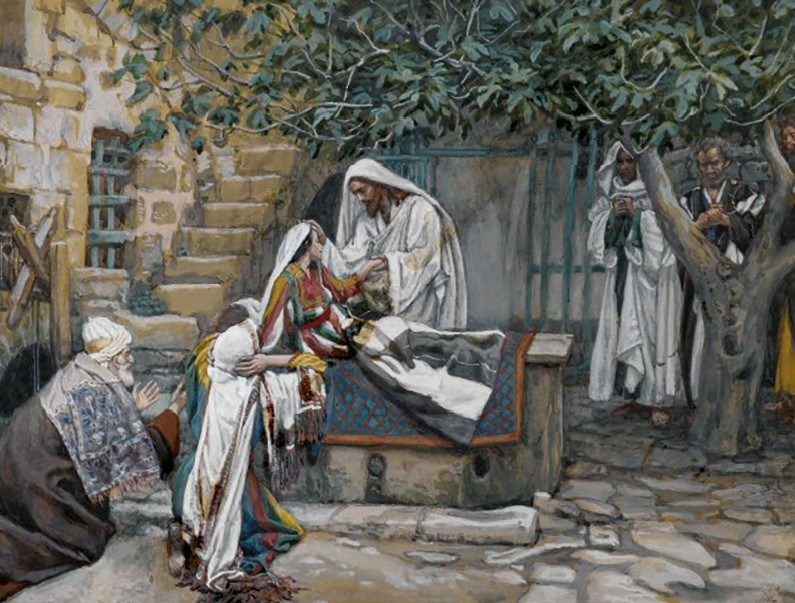FOR THOSE OF US who like to know where words come from, the word “resurrection” has come into our English language from Latin: re means “again” and surgo means “I rise”.
So obviously “resurrection” means that I stand up or rise again.
The four Gospels are the accounts of the life, death and resurrection of Jesus Christ. (The word “Gospel” means “good news”.) The Gospels contain detailed accounts of the resurrections of four people, and also a brief mention of a number of unnamed people who rose when Jesus was resurrected (Matthew 27:52–53).
Our first resurrection is a lovely story which is recorded in Mark 5:22–43, where a father was totally desperate to save the life of his sick 12-year old daughter. Jairus was the ruler of the local Jewish synagogue, so was well known in the area. No doubt he had tried everything he could to save his little girl, but it was obvious that her life was ebbing away. So, ignoring any possible criticism from fellow Jewish worshippers, he set off to find Jesus, and begged him for help. Of course Jesus agreed to come to his house, but a huge crowd impeded his progress.
A Troubled Woman
A poor disabled woman crept up behind Jesus and touched the hem of his clothes.
She was suffering from a permanent haemorrhage and had been extremely unwell for 12 years. She was totally debilitated, and she was also unable to mix with people because her condition rendered her “impure” in the eyes of Jews (Leviticus 15:25–27). She ‘had suffered much under many physicians, and had spent all that she had, and was no better but rather grew worse’ (Mark 5:26).
The moment she touched Jesus’ clothes she was healed. Jesus turned round and asked who had touched him. She was very afraid, but told him everything. Perhaps we might wonder why Jesus had caused her this further embarrassment, but it was important that the local people, who would almost certainly know of her condition, now realised that she was cured and no longer unclean. Jesus comforted her, saying, ‘Daughter, your faith has made you well; go in peace, and be healed of your disease’ (v. 34).
It’s Too Late
This had all taken some time, and now Jairus’ servants having pushed through the crowd came and told him that his daughter was dead. What a lump must have risen in Jairus’ throat! “If only this woman hadn’t come just then, perhaps Jesus would have been in time to save my little girl.” Of course Jesus knew what was happening, and consoled him saying, ‘Do not fear, only believe’ (v. 36).
When Jesus arrived at Jairus’ house the mourners were already there, and there was a dreadful scene of misery, confusion and noise. Jesus asked them all to leave, saying, ‘The child is not dead, but sleeping’ (v. 39). Of course everyone ridiculed him, but he knew what he was going to do. He took the girl’s parents and three of his disciples to the place where the girl lay, took her hand, and calmly said, ‘Little girl, I say to you, arise’ (v. 41). And the girl opened her eyes and got up from her bed.
Jesus instructed them to give her some food, and not to tell anyone what had happened. I’m sure you can imagine the joy and thankfulness that filled their house that day.
When we put these two stories together, we can see what opposites they were. Jairus was a ruler of the Jewish synagogue—an arch Jew! But the woman was a complete outcast, and banned from Jewish society. Jesus however healed both—the wealthy young girl, and the poor desperate woman. But there’s more!
Back in the Garden of Eden, right at the beginning of the Bible, Adam and Eve sinned and disobeyed God’s Law. God told them they would now live in a cursed and blighted environment, and that they would both die in due course (Genesis 3:19); and he told Eve that childbirth would be painful and hazardous (v. 16).
Surely here, in these two miracles, we can see how the Saviour Jesus Christ is able to take away both these punishments. He can cure any illness and conquer death itself. When he returns as King, those who believe in him and accept his teaching will have their illnesses cured and will be given eternal life.
He will wipe away every tear from their eyes, and death shall be no more, neither shall there be mourning, nor crying, nor pain any more, for the former things have passed away (Revelation 21:4).
What joy there will be in the Kingdom, when sin and death are no more, and we can live in peace with Jesus, the King of the world.
David Simpson
To be continued.




